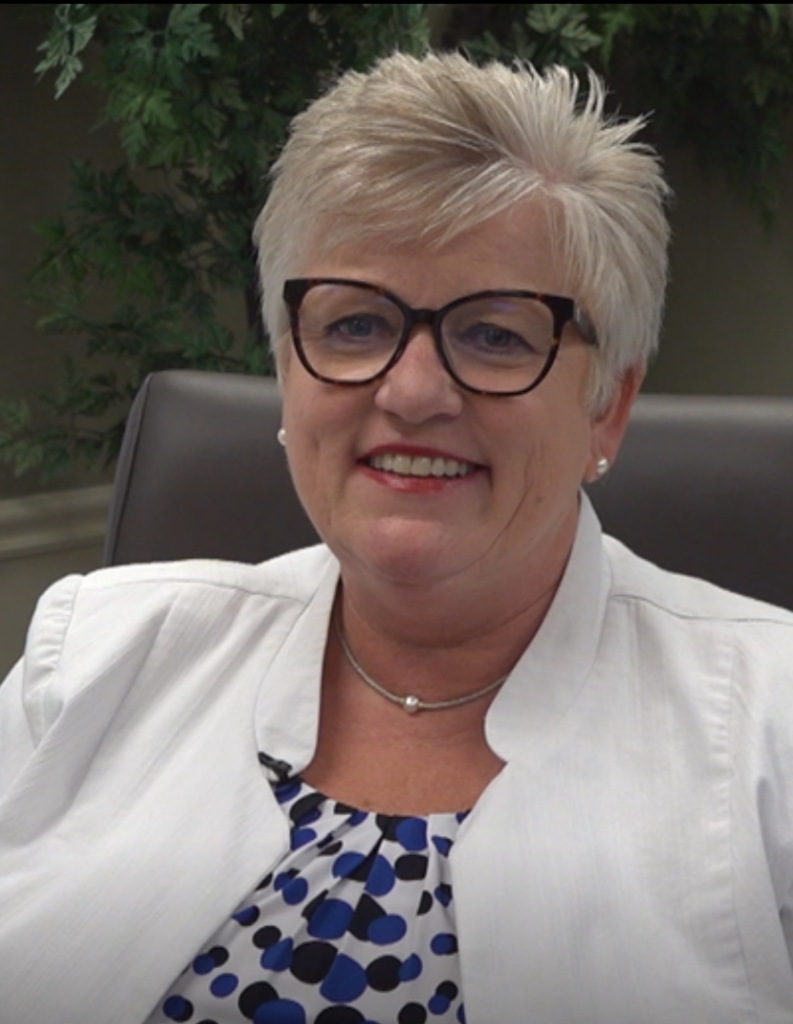By Charles Williams
The Texas and U.S. economies are surging along with the confidence of U.S. consumers as COVID-19 vaccines flood the nation. But the persistence of the coronavirus makes the recovery fragile.
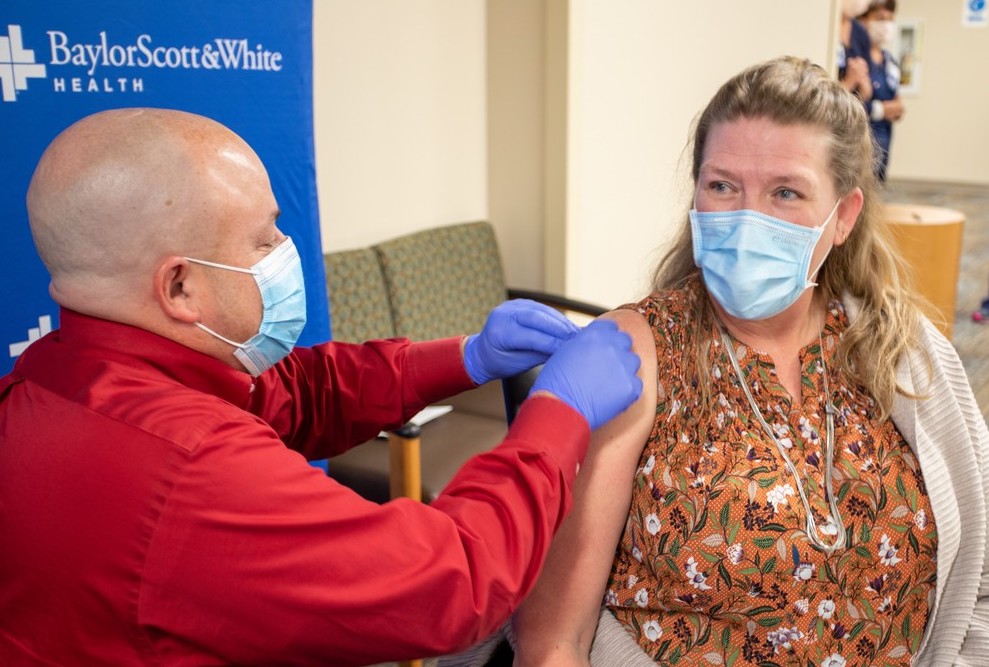
The pace of the U.S. economic recovery in 2021 hinges on the pace of COVID-19 vaccinations.
The general business activity index, which reflects the net share of Texas executives saying conditions improved or worsened, hit an all-time high in April for services companies. Manufacturers’ confidence spiked, too.
In the Texas services sector, indexes on general business activity and company outlook rose to their highest levels since the survey began in 2007. Among manufacturers, indexes for new orders and growth in orders climbed to their highest readings in the history of that survey, according to the Federal Reserve Bank of Dallas.
“All the stars are aligning to have a great recovery,” Luis Torres, research economist at the Texas Real Estate Research Center at Texas A&M University told The Dallas Morning News. “The economy is going gangbusters and the [Dallas Fed] forecast calls for recovering all the lost jobs [in Texas] by the end of the year.”
Texas Comptroller Glenn Hegar recently issued a revised revenue estimate that gives lawmakers several billion more dollars to spend as they wrap up the next state budget. Hegar cited improved performance of the state economy as COVID-19 restrictions began to be lifted over the past two months and immunizations improved consumer confidence. In a letter to Gov. Greg Abbott, Lt. Gov. Dan Patrick, and Speaker Dade Phelan, Hegar said he is optimistic about economic growth because of the rollout of COVID-19 vaccinations in Texas and reopenings of businesses in the state and elsewhere in the U.S.
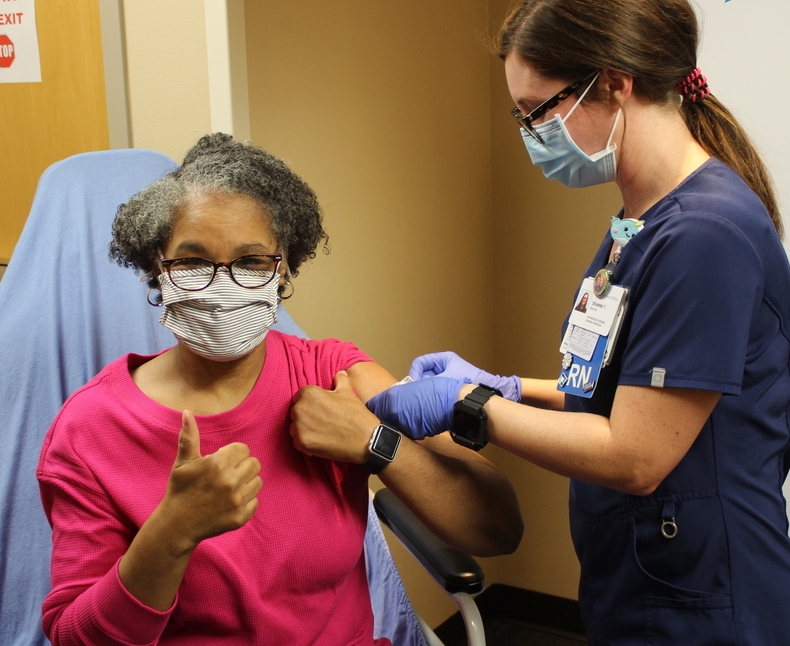
Nationally, the economy expanded rapidly in the first quarter at a torrid 6.4% annualized rate. Personal consumer spending rose at an equally impressive annualized rate of more than 10%.
Our local area is also participating in the recovery. McLennan County sales and county use tax was up 1.6% in April and 7.7% year-to-date. Waco specifically is up 2.6% year-to-date. Many Texas cities and counties are running deficits compared with last year’s figures.
Despite this, nearly a quarter of U.S. adults say they would still avoid shopping at local businesses or dining inside restaurants after being vaccinated, according to a new national survey by YouGov on behalf of Bankrate. But the economy can’t fully recover until consumers do what they do best in America: buy freely what they want or need.
The key to full return of the local economy is residents’ confidence: How vulnerable am I if I venture out to shop or return to the workplace? How contagious are my neighbors and friends?
Herd immunity — the rate at which enough people become immune to a disease to make its spread unlikely — may be an unattainable goal, experts say. However, the only sure answer is to vaccinate as many people as we can.
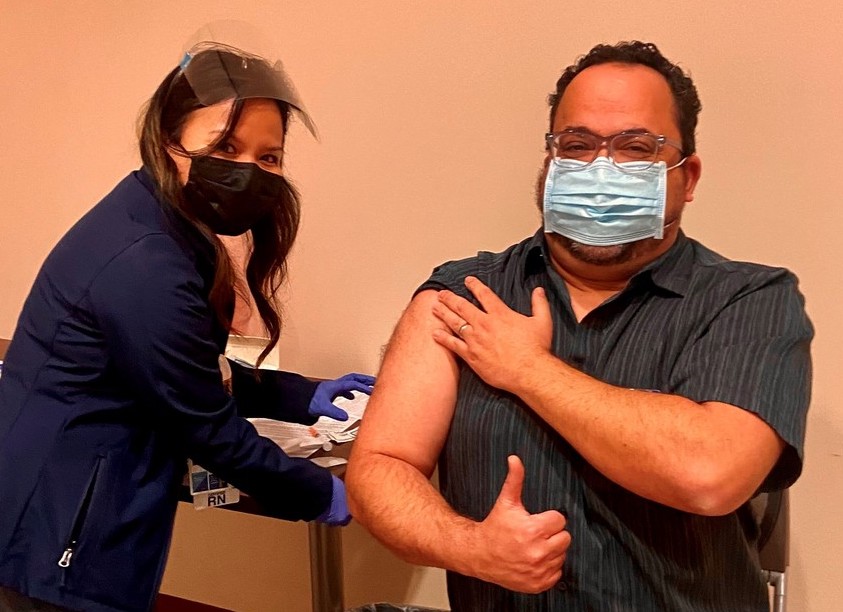
As of May 6, only 24% of McLennan County residents were fully vaccinated. Compare that with the Texas rate of 29% and the U.S. rate of 33%. A CDC assessment looking at hospitalizations in two U.S. hospital networks covering 24 hospitals in 14 states has found that fully vaccinated adults over the age of 65 are 94% less likely to be hospitalized with COVID-19 than unvaccinated adults in the same age group.
Encourage your friends, coworkers, and neighbors to get vaccinated. As more and more acquaintances become vaccinated, hesitancy and resistance will continue to melt. That leads to more consumer confidence and fuels the local economic recovery.
A free online MyBSWHealth account is the easiest way for Waco area residents to schedule vaccine appointments at Baylor Scott & White Health. There are also walk-in appointments available.
Right now it is time to roll up our sleeves and engage our communities to increase vaccination. The health of our community and our economy depend on it.
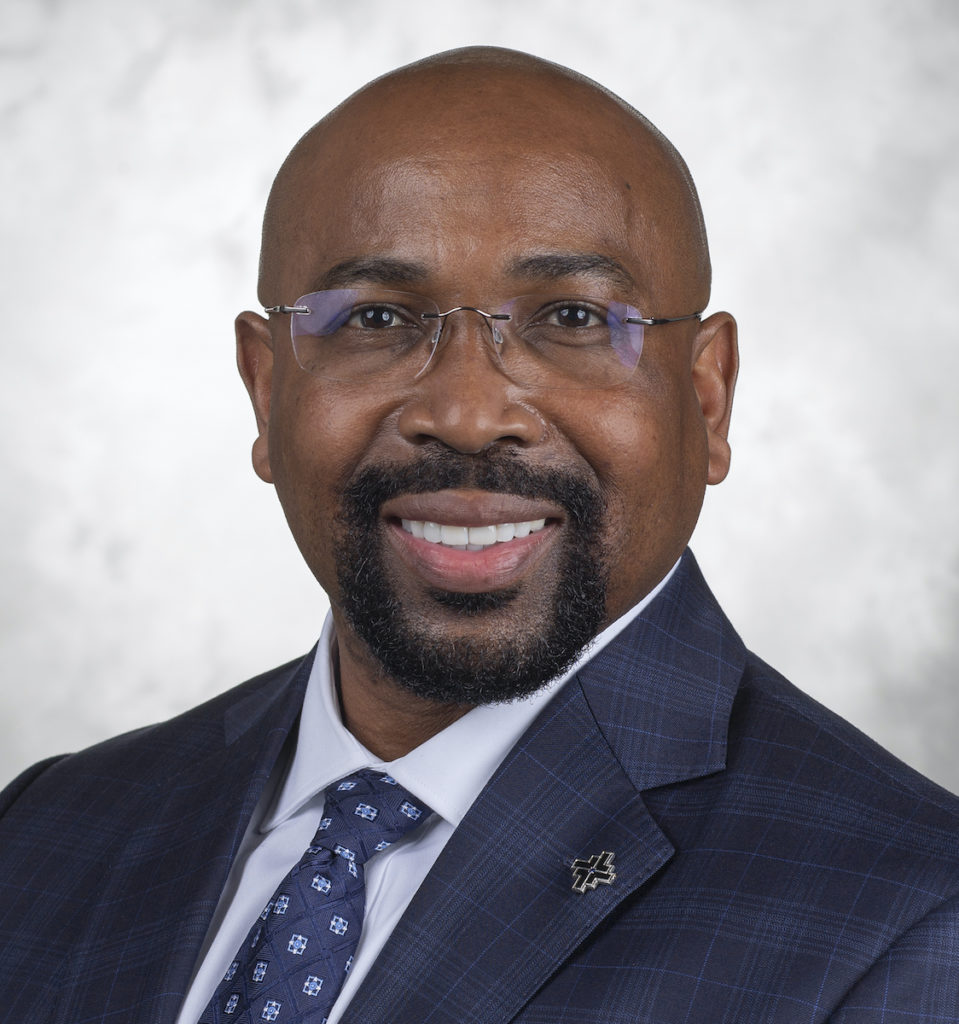
Charles Williams joined Baylor Scott & White in January 2021 as president of BSW – Hillcrest in Waco. Prior to that, he served as president and CEO of Regional Medical Center of Orangeburg & Calhoun Counties in Orangeburg, S.C. Charles is no stranger to Texas, having spent most of his life in the Dallas-Fort Worth metroplex.
The Act Locally Waco blog publishes posts with a connection to these aspirations for Waco. If you are interested in writing for the Act Locally Waco Blog, please email Ferrell Foster at [email protected].
By Tiffiney Gray
One year ago, on Sunday, March 8, 2020, I attended church service with my family, drove to MILO to have brunch, then went to Michael’s to pick up some crafting materials. With two little ones (then 5 months and 3 years old) along for the ride, it was no small decision to add two more stops to our outing. Looking back, I’m glad I braved the possibility of a nursing infant meltdown and toddler restlessness to see smiling faces at church, enjoy brunch, and pick up supplies. Little did I know that day would be my last in-person church service, Sunday brunch, and in-store shopping experience for a very long time.

In two weeks, our community will mark one year since our local shelter-in-place order. One year of hunkering down, wearing masks, travel restrictions, canceled parties, rescheduled family events, and modified birthday celebrations. For many of our neighbors, this past year has brought on much more than mere social inconveniences, but instead has meant financial, occupational, and family hardships like never before.
All of this change, not to mention the duration, can take a toll on mental, emotional, and physical health. I’ve been checking in with colleagues, family, friends — and myself — to see how we’re doing. How we’re trudging along. It seems like many of us need a little more help, more support, and more grace these days. And our recent deep freeze hasn’t made this marathon of calamity any better. For many of our Waco neighbors February’s icy, snowy storm dealt yet another blow to a long haul of health concerns, economic uncertainty, lost income, social isolation, and all kinds of distress. Being in the dark, being in the cold, wanting for running water, and watching your groceries (bought with hard-earned wages) spoil right before your eyes has a way of layering on the pressure and testing our ability to cope.
These pressures can accumulate, and experts are warning of an impending mental health epidemic that could sweep across the country, but especially impact communities of color.
Last spring, we witnessed the disproportionate physical health impacts of COVID-19 in Black and Hispanic communities brought on by historical social and economic inequities. Changes in the way families interact, commune, socialize, celebrate, and mourn have aggravated existing traumas, brought on separation distress, grief issues, anxiety, and a host of other mental health challenges. But what can we do reduce the impact of this looming storm?
Check on your neighbors, family, and friends.
Use every safe communications channel at your disposal, including digital and traditional ways of engaging. Think Zoom, FaceTime, Google Meet, What’s App video calls, and good old-fashioned land lines. A carside-to-front yard meet up (with masks in tow) is also a family favorite. Maintaining relationships and social connections is more important than ever to keep spirits high.
Tell your health provider what’s going on.
When we have back pain, we don’t hesitate to see a spine doctor or a physical therapist. The same should be true of emotional pain. Connect with a mental health provider or schedule an appointment with your family doctor to ask about more specialized support from a mental health practitioner, therapist, or counselor.
Talk with a trusted advisor.
Whether it’s a pastor, a community elder, a professional mentor, or in my case another mom of toddlers, extend an invitation to pray together, to share a devotion through FaceTime, or to have virtual coffee to talk and catch up. My hope is that the outpouring of grace, prayers, and encouragement flows both ways.
Call for immediate help.
The Heart of Texas Region MHMR is home to emergency counseling services for anyone impacted by the pandemic. MHMR is a huge local resource with a host of counseling and therapeutic services in addition to social support and wellness resources. Whether it’s a crisis or you simply need to talk to someone, MHMR is available to help.
MHMR Crisis Line 866-752-3451
MHMR COVID Help Line 866-576-1101
Advocate for better coverage of mental health care.
I’ve been on the search for mental health support and therapy for my family and me for several months. With my own health consumer hat on, navigating insurance coverage and which providers even accept my (really good) insurance, or accept insurance at all, has been both surprising and disappointing. We need collective advocacy to demand better. Better payor coverage of mental health services and better acceptance of insurance by mental health providers. There is undoubtedly a need – a market – for mental health care, and marketplace vendors (practitioners and payors) should better respond to consumer needs.
A year ago, I wrote a post about minding your mental health during the COVID-19 pandemic. It’s hard to believe that we’re still riding out this storm 11 months later and my hunch is that this ride of ours isn’t over yet. Our resilience has been tested, tried, and tested again, but we’re in this together to support our neighbors when they need us and to lean on our neighbors when we need them.
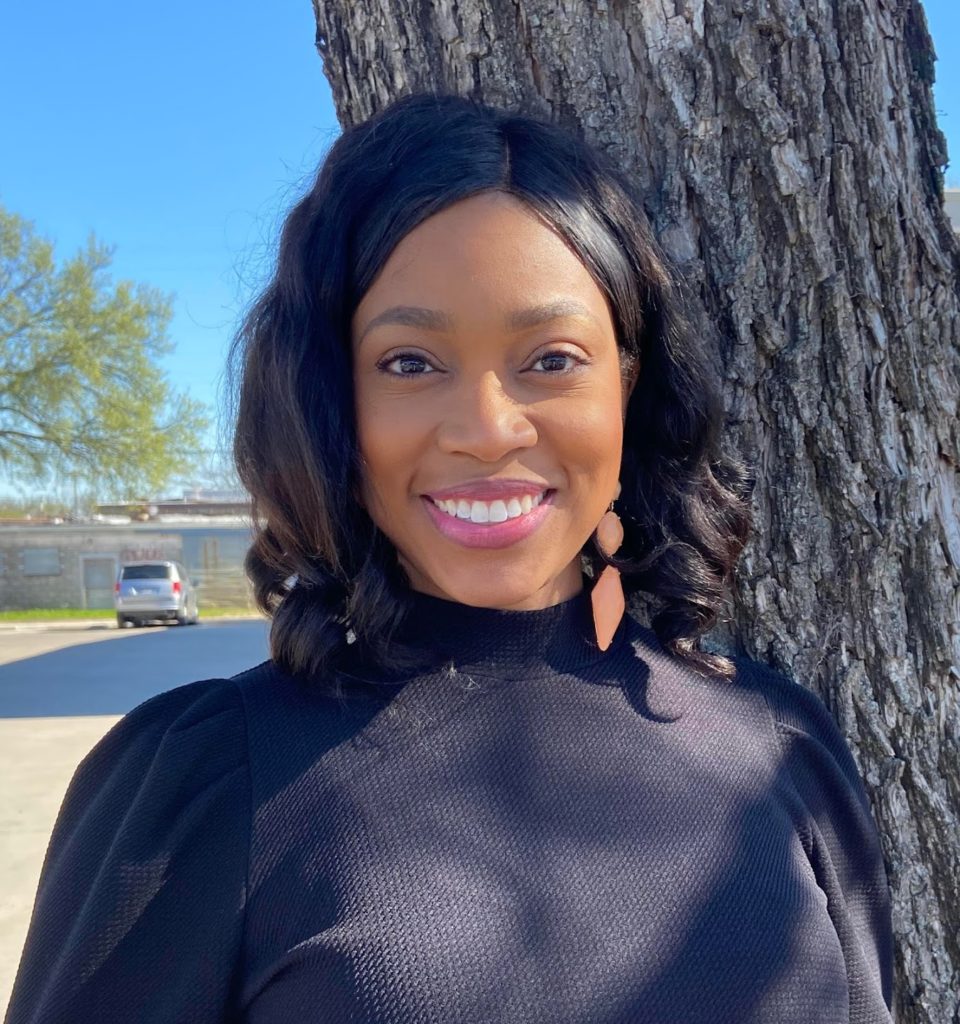
Tiffiney Gray is senior content specialist for health with Prosper Waco.
The Act Locally Waco blog publishes posts with a connection to these aspirations for Waco. If you are interested in writing for the Act Locally Waco Blog, please email Ferrell Foster at [email protected].
In honor of Black History Month, we are featuring interviews with local Black community leaders. These pieces were written by Baylor University students from the Department of Journalism, Public Relations, and New Media. The students asked questions about what the leaders love about Waco, and we are excited to share their responses with you this month.
By Nicole Arentsen
Because of the pandemic, one mother and teacher used her passion to create a solution to a concern in the community. Charra Burns noticed that parents had worries for their child’s academic success with remote learning and wanted to help support them in any way. Her love for Waco has only grown more since she has become more involved in the city.

“I love how the community comes together for the greater good to make it an even greater place,” Burns said. “I love all the community initiatives, community events, the family functions, and just the creativity on how organizations have tried to adapt to COVID-19.”
Burns has been a teacher in Waco for a few years now. She created a program called READ, where she collected books for different students in the community and was able to assist in reading skills one-on-one.
But recently with the pandemic when schools in the community decided to teach remotely, an idea popped in her head to create sensory boxes for children. This idea led to her opening her new business called, Think Learn Play, where she creates custom, hands-on lesson plans for parents to complete with their children at home.
Burns had noticed the concern of parents with younger students who have been at home since spring and worried their students are falling behind.
“I also am able to support the parents because they were working or did not know how to teach certain subjects,” Burns said. “I think what makes the box unique is it really teaches the parent how to teach their kid and then also gives them ideas on what to do with their kids outside of the box.”
Her most popular audience is children under 8 years old but has custom boxes for younger toddlers and older students as well.
“I did not expect the community to respond to it the way they did, but I think COVID-19 had a really big play in it,” Burns said. “I have just been able to take part in a lot of families’ lives unexpectedly with these boxes.”
The small yet tight knit community of Waco offers numerous activities around town to stay connected and busy. The Act Locally Waco blog encourages people to explore all parts of the city and find areas to help out that sparks their passions. The blog also reminds people to have a grateful heart and to “take advantage of all the things we are still able to do,” Burns said.
There are many opportunities for someone in Waco to find something they enjoy and like-minded friends to make the town feel like home.
“Getting involved also means, for me, teaching my kids about the important initiatives, teaching them about all the positive things in our community and finding them a way to be involved as well,” Burns said.
This passionate woman was able to create a safe and unique solution for a need in the community from her own home. Things might be more difficult at times, but open your mind and think creatively because the options are endless to help the community.
“I hope that more families will learn about Think Learn Play, try out the sensory boxes, and tell a friend,” Burns said. “The feedback and responses that I have gotten have been huge. I have been expanding to even out of state and the larger community which is really important to me because I just want to do something special in our community here in Waco.”
Nicole Arentsen is a Baylor University journalism major from Orange, Calif.
he Act Locally Waco blog publishes posts with a connection to these aspirations for Waco. If you are interested in writing for the Act Locally Waco Blog, please email Ferrell Foster at [email protected].
For many, the holidays are a time of tradition, new memories sprinkled among old memories, and the comfort and certainty of family. As we all know, 2020 and COVID-19 have thrown the holidays for a loop this year! We are scrambling to alter or cancel plans for safety, figure out new ways to carry out old traditions and keep in touch when we can’t be face-to-face. This admittedly feels chaotic, unwelcome, and out of our control.
Even in a year when we aren’t facing a global pandemic, children in foster care experience sudden and drastic life changes that feel chaotic, unwelcome and out of their control. Through no fault of their own, they are removed from their original family due to allegations of abuse or neglect, causing many facets of life as they knew it to suddenly shift. In addition to the initial trauma of the abuse or neglect they may have experienced, they now may be placed with relatives, foster parents, or in a residential facility, possibly in another city, likely enrolled in a different school, away from friends and familiar faces. Their life becomes inundated with new faces…caseworkers, attorneys, therapists, teachers, foster parents, or caregivers. For many children in foster care, the only constant is change.
If you pull this description into holiday time, you can see that it sets children and youth in foster care up for a holiday experience they didn’t bargain for. Caseworkers work hard to set up holiday visits with families of origin, but they often do not fall on the holiday itself and, this year due to COVID, are likely virtual. Some of this likely sounds familiar to a lot of us who have had our own holiday plans upended. There is a string of similarity between those situations and the reality of children in foster care during the holidays. It’s all in the interest of safety. Safety for our health, safety for children.
The hope in both situations is to be able to return to our prior norms in a safe manner. Just as we all look forward to the day when we can return to our routines without threat of COVID, the hope is always for children in foster care to be able to return to their family of origin, if it has been deemed safe. As we experience this unique holiday season, may we remember the young members of our community in foster care and hope for their safety and wellbeing.
If you are interested in supporting the work that CASA does to serve children in this situation, consider becoming a CASA. You can learn more about it by visiting https://casaforeverychild.org/volunteer/become-a-casa/. You can also give the gift of CASA this year by donating at http://casaforeverychild.org/give/.

Though born and raised in Fredericksburg, Anna Futral has called Waco home for sixteen years. She is a graduate of Baylor University, where she received her Bachelor of Business Administration in Accounting and a Master of Taxation. She built her career as a Certified Public Accountant at JRBT, where she worked for over ten years, specializing in service to nonprofit clients, prior to joining CASA of McLennan County in May of 2017. In addition to her business acumen and administrative leadership skills, Anna brings to CASA a deep-seated passion for children in foster care. She and her husband, Trent, are former foster parents and adopted their three children from foster care in 2016. When she’s not busy leading CASA forward or chasing her kids, ages 5, 6, and 7, Anna enjoys reading, spending time with good people, and working with her husband on their 120-year-old house in the heart of Waco.
By Dr. Peaches Henry
As predicted by infectious disease experts in the summer, coronavirus infections are now surging across the nation during the winter and holiday period. COVID-19 hospitalizations in McLennan County hit a record on Monday, November 24, and local health officials said that warnings about Thanksgiving gatherings must be taken seriously. If not, the McLennan County’s medical capacity could be strained in the weeks afterwards. The scientists of the Centers for Disease Control and Prevention are pleading with Americans to avoid traveling for Thanksgiving and to celebrate only with members of our immediate households. Put starkly, spend Thanksgiving with family; spend Christmas in the ICU.
Facing these dire consequences, many of us have decided to forego our traditional holiday celebrations to try to stem the spread of the coronavirus. My own family, stretched across several Texas cities and involved in various conditions of employment including completely working from home, working hybridly, and working face-to-face all dealing with students, has decided to forego a face-to-face Thanksgiving this year.
Though I am disappointed not to be with my family, I wanted to reach out to others to offer some ways that we are trying to get through this time. Let’s face it. We might have to spend Christmas separated as well. We might as well prepare for the entire holiday season—Christmas, Hanukkah, Kwanzaa, all of them. These are safe activities that are good for our emotional and mental health that abide by the recommendations of the CDC and local doctors.
Be grateful.
- If you are reading this blog, be thankful. Though 2020 has been unprecedented in so many ways, we still have much to be thankful for. Count your blessings. Since it is 2020, count up to twenty blessings. Go ahead and count twenty more, because it’s 2020.
Reach out to others.
Though apart, we are in this season together. Some people suffer from depression during this season even when we are not in a worldwide pandemic, so you can imagine how down they are feeling now. We know that giving to others helps build resilience and diminishes some of the isolation many are suffering. Therefore, it is important to be purposeful about reaching out to people and making them feel part of the community.
- How about that new neighbor who just moved in? Write a note of welcome with your phone number for emergencies. Or that family whose children have been learning remotely for weeks? Leave a puzzle or a card game on the front porch.
- Give poinsettias to several of your neighbors.
- Deliver a meal to someone you know will be alone for the holidays. Bake cookies and let your children deliver them to neighbors (remember, contact free!). This is one of the CDC recommended substitute activities.
Find new ways to observe your family’s traditions.
- One of the activities I miss most is cooking and chatting with family the night before the big day, especially with my mom (now gone to heaven) “suggesting” that I add more of this or that ingredient. This year I’m cooking and chatting with my sister via Zoom.
- Among my family’s time-honored traditions is playing board games. From Connect Four to Monopoly to Bible Trivial Pursuit to Trouble to Uno to Jenga to Sorry to Scrabble, we play them all. To say that we play games is a milquetoast description of what my family has done over the years. We play ferocious, competitive, winner-take-all games. We game out which games we are going to play weeks ahead. We pick our teams with winning in mind—my late mom, the Sunday School superintendent, for Bible Trivial Pursuit; my son, the strategizing law student, for Monopoly; my brother, the sports fanatic and movie enthusiast, for Trivial Pursuit; and me, the English professor, for Scrabble. Good sportsmanship is a must: winners and losers must shake hands and smile at the end of the game. My sister and I still crack up remembering the grimaces that passed for smiles when we were children. Then we gloat all year till the next holiday (really for years). The family still gives me grief for not remembering Robert Ludlum as the author of the Bourne Identity which would have won the game for the girls in 2006! Argh! So how will my family replace this tradition when we will not be together? We are still going to play games. We are going to harness the power of technology—Zoom, Facetime, Google Hangouts, etc. One game we are going to play is the #Hashtag. This will advantage millennials and GenXers, but I plan to get one on my team. Whatever your family’s tradition is, find a new way to celebrate it.
- Enjoy watching the Macy’s Thanksgiving Day Parade while you prepare dinner? The full 2019 Macy’s Thanksgiving Day Parade is on YouTube.
- Watch your favorite holiday specials together on Zoom. “A Charlie Brown Christmas” will air free on PBS on December 13. One, two, three, click!
- Put “the game” on at everyone’s house and watch it “together.”
- Sing Christmas carols together via Zoom.
Bring back old traditions.
- A Christmas card arriving via the USPS in a mailbox would lift the spirits of someone who is spending the holiday alone and away from family. Writing the cards together as a family over cookies and milk or tea could create some great family moments. The benefits of a paper card is that it can be hung up in a barracks, stuck to a refrigerator, or placed on a desk.
Create new traditions.
- Plug your charger into your phones and have a conversation with a group of friends or family members. This can easily be done via Zoom, but if folks are tired of Zoom, everyone can kick back on couches and chat. We play a conversation game called “Favorite” at dinner parties that is easily transferable to a phone conversation. It works for all ages and leads to great conversations and reveals surprising tidbits about players. Sample topics: What is your favorite childhood television show? Dark Shadows, anyone? What is your favorite book? Favorite mystery? Favorite car? Favorite animal?
- Have a drive-by parade for sick-n-shut-ins at your church.
Put on your favorite soundtrack.
- A good soundtrack can make any situation bearable. Put yours on and dance the night away. Take your pick of music streaming platforms: Pandora, Spotify, Apple Music.
- Go a step further and dance. Use YouTube videos to learn the steps to line dances. The Electric Slide (old school favorite), the Wobble, the Cupid Shuffle, the Cotton Eyed Joe. Dancing is a much more enjoyable way of getting those endorphins going than running.
Breathe, relax, release.
- Embrace the fact that you don’t have to cook a twelve-course meal for twenty family members plus that family of six who will show up without notice.
- Be happy that Uncle Blank won’t be at the table to ask uncomfortable questions. Do give him a call though.
- Go to bed early the night before Thanksgiving Day. Better, get up late on Thanksgiving Day.
- Put your holiday decorations up early. My neighbors seem to already have decided to do this. Lights lift the spirits. My family usually waits till Christmas Eve to go see the lights. This year, I’m going early.
Bonus: Have hope and faith!
- Know that we will get through this time. History is our witness. The world got through the 1918 flu pandemic. We will get through the 2020 COVID-19 pandemic.

Peaches Henry is the president of the Waco NAACP and an English professor at McLennan Community College. She will be spending Thanksgiving with her best friend and black Lab Samson and Christmas with her son Corey and Samson.
The Act Locally Waco blog publishes posts with a connection to these aspirations for Waco. If you are interested in writing for the Act Locally Waco Blog, please email [email protected]for more information.
By Christine Perera
As a part-time resident assistant at an assisted living facility in my hometown of Boerne (TX), I have the pleasure of getting to know senior citizens. While at school, I look forward to summers spent reconnecting with residents at The Heritage Place. When I entered the facility this summer, however, things were different. Instead of a warm welcoming, all the residents were tucked away in their rooms. Social distancing policies made interactions between residents scarce and reconnection a luxury that many assisted living facilities can no longer afford.
Since COVID-19 broke out, everyone has made sacrifices. At the living facility, residents sacrificed communal dining experiences for meals taken in lonely rooms. I have helped with delivering such meals to residents, and there is one instance my mind often revisits. I pushed an old busser cart filled with trays of homemade tomato soup, and the tangy, comforting scent followed me down the long, carpeted hall. When I arrived at the first door, I balanced a tray in my arms and, as one hand lifted to knock on the door, the tray began to slip from the other. Hot soup spilled all over the floor, causing me to jump back in surprise. Luckily, I knew the kitchen had a large pot of soup on the stove. I didn’t bat an eye as I mopped up the mess and headed back to the kitchen for another bowl. Instead, I took comfort in knowing that such a small mistake could happen to anyone. As I learned more about senior hunger, this very thought developed into a source of worry.
Many people do not have the means to access another bowl of soup when they need it. My experience as an intern for the Baylor Collaborative on Hunger and Poverty showed me that sometimes accidents, like dropping food, cause senior citizens with already limited food access to go hungry. Being unable to physically get more food can also have long-term health consequences.
Amidst the global pandemic, obstacles to food accessibility have become a larger problem than normal. This is especially true for home-bound senior citizens, who face new difficulties in accessing food due to the virus. While stay-at-home orders keep COVID-19 in check, they can also make trips to the grocery store a frightful task for those at increased risk of contracting severe cases of COVID-19. Because of the high risks, caring for vulnerable populations, such as the elderly, is more important than ever before.
Meals on Wheels is a food aid program that delivers nutritious meals to senior citizens. The program also helps look after the in-home safety of participants, connect participants with their communities, and increase socialization. According to Debbie King, Executive Director of Meals on Wheels in Waco, volunteers are sometimes the only people participants interact with all day. While delivering meals, volunteers chat with seniors and take note of health issues they believe might indicate severe or life-threatening conditions. These health issues are then reported to worried family members, who may live far away and be unable to check on their loved ones themselves.
According to the More Than A Meal Comprehensive Network Study, in-home health assessments (safety checks), social opportunity, and nutritional access make Meals on Wheels an invaluable program. Many families take comfort in knowing they can rely on Meals on Wheels volunteers during these unprecedented times. Additionally, those who cannot afford care at a senior facility can receive aid at a fraction of the private and/or public cost. For reference, the average cost of board at a senior facility is $57,000/year, in comparison to Meals on Wheels participation, which costs the organization roughly $2,000/year per person (based on Texas data). Unfortunately, due to decreased funding and increased demand, Meals on Wheels in Waco may soon be unable to support all its participants.
Meal on Wheels is supported by federal and state grant programs. The recent elimination of federal grants that once funded Meals on Wheels have made program budgets tighten. A statement from Meals on Wheels America President and CEO Ellie Hollander revealed that among cut grants are the Community Services Block Grant (CSBG), Community Development Block Grant (CDBG) and Social Services Block Grant (SSBG).
Texans Feeding Texans is a grant that Waco’s Meals on Wheels chapter relies on, and Texans Feeding Texans is also at risk of losing funding. Texans Feeding Texans is a state grant funded by the Texas Department of Agriculture. The Texas State Department recently decreased the Texas Department of Agriculture’s budget by 5%, creating a loss of up to $1,400,000 during the current biennium. This budget cut means there is less money available to fund grant programs. When the Texas legislature evaluates the Texans Feeding Texans grant in 2021, the program risks reduced funding if not enough people advocate for it.
Meals on Wheels in Waco is also supported by local funders and volunteers. Many local healthcare providers and non-profit organizations sustain Meals on Wheels through fundraising and donations. Volunteers play a key role in getting the meals to Meals on Wheels participants. Because of COVID-19, people may feel reluctant to physically help their community members. Additionally, limited funds have presented obstacles in delivering meals to all program participants. Whereas the Waco chapter used to deliver food daily, King stated that local volunteers now visit with participants 3-5 times per week.
Since COVID-19 broke out in February, Meals on Wheels in Waco has experienced a 20% increase in participants. The national Meals on Wheels program had a 47% increase in participants since March. The program has spent more than originally planned to ensure meals are made and delivered per CDC health guidelines. To compensate for the unpredictability of food resources, King explained that Meals on Wheels in Waco also increased portion sizes by 30%. The extra costs of such care-inspired decisions and limited funds have increased net costs of delivering meals by 97% (according to a national Meals on Wheels Pulse survey). If the net costs of delivering meals remains so high, Meals on Wheels chapters may be unable to reach all participants at the same time that participants are more reliant on food accessibility assistance than ever.
The Waco community cannot afford to be complacent about senior hunger. Wacoans have a duty to get involved with our community so programs like Meals on Wheels get the funding and support they deserve. There are many ways you can get involved. Stay informed about local, state, and federal government and call your representatives to advocate for program funding through grants such as Texans Feeding Texans. Make time to deliver meals to vulnerable community members. Donate money to your local Meals on Wheels chapter to help senior citizens get the food they need. These actions will allow Meals on Wheels to access much needed supplies, deliver more meals, and conduct more safety checks. Please visit www.mealsonwheelsamerica.org (national organization) and www.mowwaco.org (Waco chapter) to contribute to or learn more about the Meals on Wheels program.

Christine Perera is a senior at Baylor University. She is an intern for the Baylor Collaborative on Hunger and Poverty. Christine is majoring in Professional Writing/Rhetoric and minoring in Philosophy. In her free time, she loves to read and take long walks with her dog.
The Act Locally Waco blog publishes posts with a connection to these aspirations for Waco. If you are interested in writing for the Act Locally Waco Blog, please email [email protected]for more information.
Notes:
- Hollander, Ellie. STATEMENT ON PRESIDENT’S FISCAL YEAR 2020 BUDGET, 2019, www.mealsonwheelsamerica.org/learn-more/national/press-room/news/2019/03/11/statement-on-president-s-fiscal-year-2020-budget.
- King, Debbie. “Texans Feeding Texans.” Meals on Wheels Waco. 30 Sept. 2020, Online meeting.
- Meals on Wheels America. “A Story of Meals on Wheels in Communities Across the Country Study Summary.” More Than a Meal Comprehensive Network Study, 2019.
- NEW SURVEY DATA: MEALS ON WHEELS NATIONAL NETWORK CONTINUES TO FACE UNPRECEDENTED DEMAND AND RISING COSTS DUE TO COVID-19, 2020, www.mealsonwheelsamerica.org/learn-more/national/press-room/news/2020/08/12/new-survey-data-meals-on-wheels-national-network-continues-to-face-unprecedented-demand-and-rising-costs-due-to-covid-19.
- Perera, Christine S, and Debbie King. “Conversation About Meals on Wheels.” 29 Sept. 2020.
By Ferrell Foster
Five Waco civic, health, and school leaders Wednesday encouraged the people of Greater Waco to think of their neighbors and to be careful how they are involved in gatherings and celebrate the Labor Day weekend. They also stressed the importance of getting a flu shot.
With the holiday coming and football season upon us, Mayor Kyle Deaver asked residents to do these activities “smartly and safely” so the community can remain open. “Take care of yourself and take care of each other.” He made the comments during the weekly City of Waco News Conference related to the COVID-19 pandemic.
Jerry Maze, executive director for Education Service Center Region 12, noted, “What happens in the community shows up in the schools,” and that can be both good and bad. “If everyone works together and makes good decisions, we get better outcomes.”
Dr. Brian Becker, of Ascension Providence Hospital, called special attention to the holiday weekend, noting that following standard safety procedures is important for our public health and to our neighbors.
Dr. Marc Elieson, of Baylor Scott & White-HIllcrest, also spoke to the importance of wearing face masks, distancing, and proper hand hygiene. ”Be wise,” he said.
A number of questions were asked about schools and Baylor. For students, “it’s so much more about what’s happening off campus,” Mayor Deaver said. “We know this is hard; it’s trying for everyone, … but it’s the way we keep schools open and having football” and other activities.
Dr. Jackson Griggs, of the Family Health Center, praised the efforts of Baylor University to test and then isolate students exposed to COVID-19. “I’m impressed with efforts by Baylor to mitigate the risk.”
Current hospitalizations are down some, but the hospital representatives said their in-patient numbers usually lag behind case counts by about a week. And case counts have been rising in McLennan County.
The current “Effective Reproduction Rate” for McLennan County is 1.07, Mayor Deaver said. Anything above 1 means the disease is expanding, not contracting. The Rt is a measure of contagiousness or how many people one COVID-19 person infects.
In his closing remarks, Dr. Griggs highlighted the importance of bringing down the positivity rate. In recent weeks that rate has hovered just under 15% in McLennan County, which is above the state rate. More testing helps identify people with COVID-19 and also lowers the positivity rate. “Anyone with subtle symptoms needs to come in and be tested,” Dr. Griggs said. The first step is to contact your primary care physician.
The head of Family Health Center also emphasized the importance of flu vaccinations. “We need to keep flu rates down this season,” Dr. Griggs said. There’s a lot we don’t know about flu and COVID-19 infections in the same person. “Flu vaccines are imperative.”
It is especially important to promote the flu vaccines in “communities of color” because they have been particularly hard hit by COVID-19 and have “historically lower vaccination rates.”
The news conference is aired at 1:30 p.m. each Wednesday at WCCC-TV for the public to view.
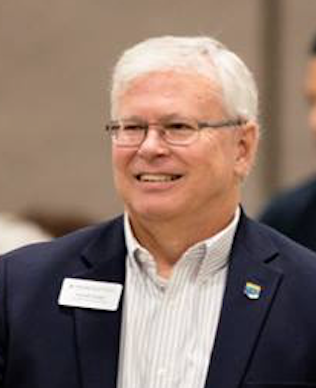
Ferrell Foster is senior content specialist for care and communication for Prosper Waco. He also serves on the Act Locally Waco Board of Directors and helps the website with blog posts related to health, education, financial security, and equity.

